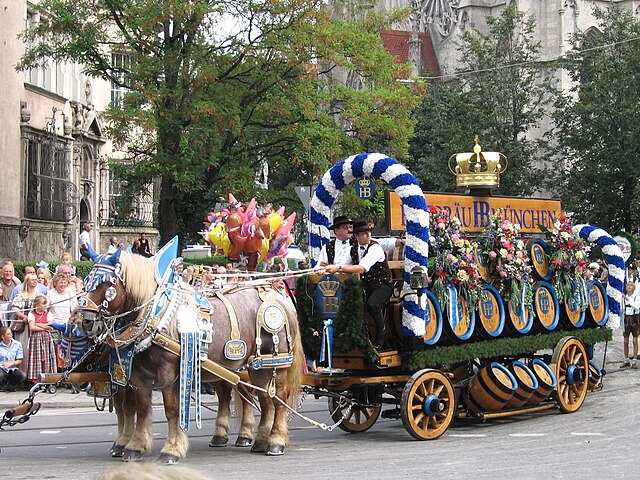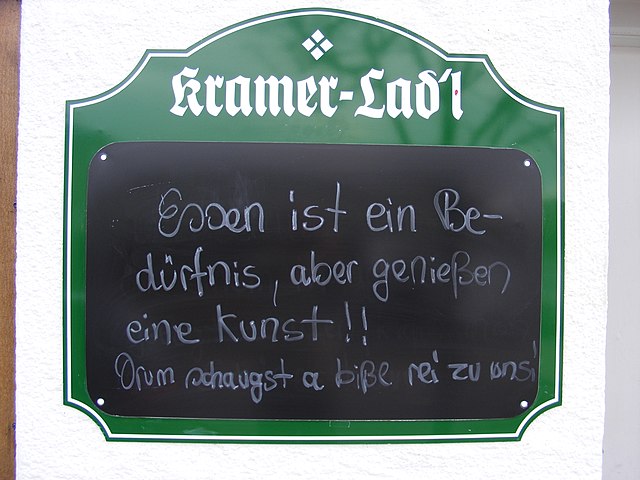Bavarians are an ethnographic group of Germans of the Bavaria region, a state within Germany. The group's dialect or speech is known as the Bavarian language, native to Altbayern, roughly the territory of the Electorate of Bavaria in the 17th century.
The Oktoberfest in Munich, the most widely known festival of Bavarian culture, held since 1810 (2006 photograph)
Caricature of four "Munich types" (Münchner Charakterköpfe): Highlander (Der Wastl aus dem Oberland "Wastl from the Oberland"), clerk (Gerichtsschreiber "court secretary"), shirker (Invalid in Friedenszeiten "peacetime-invalid"), petty bourgeois (Münchner Hausvater "Munich pater familias"), Julius Adam, Die Gartenlaube (1875).
Joseph von Fraunhofer
Franz Josef Strauß
Bavarian, alternately Austro-Bavarian, is a major group of Upper German varieties spoken in the southeast of the German language area, including the German state of Bavaria, most of Austria and the Italian region of South Tyrol. Prior to 1945, Bavarian was also prevalent in parts of the southern Sudetenland and western Hungary. Bavarian is spoken by approximately 12 million people in an area of around 125,000 square kilometres (48,000 sq mi), making it the largest of all German dialects. In 2008, 45 percent of Bavarians claimed to use only dialect in everyday communication.
Parking sign in Munich
Public sign combining Standard German and Bavarian






